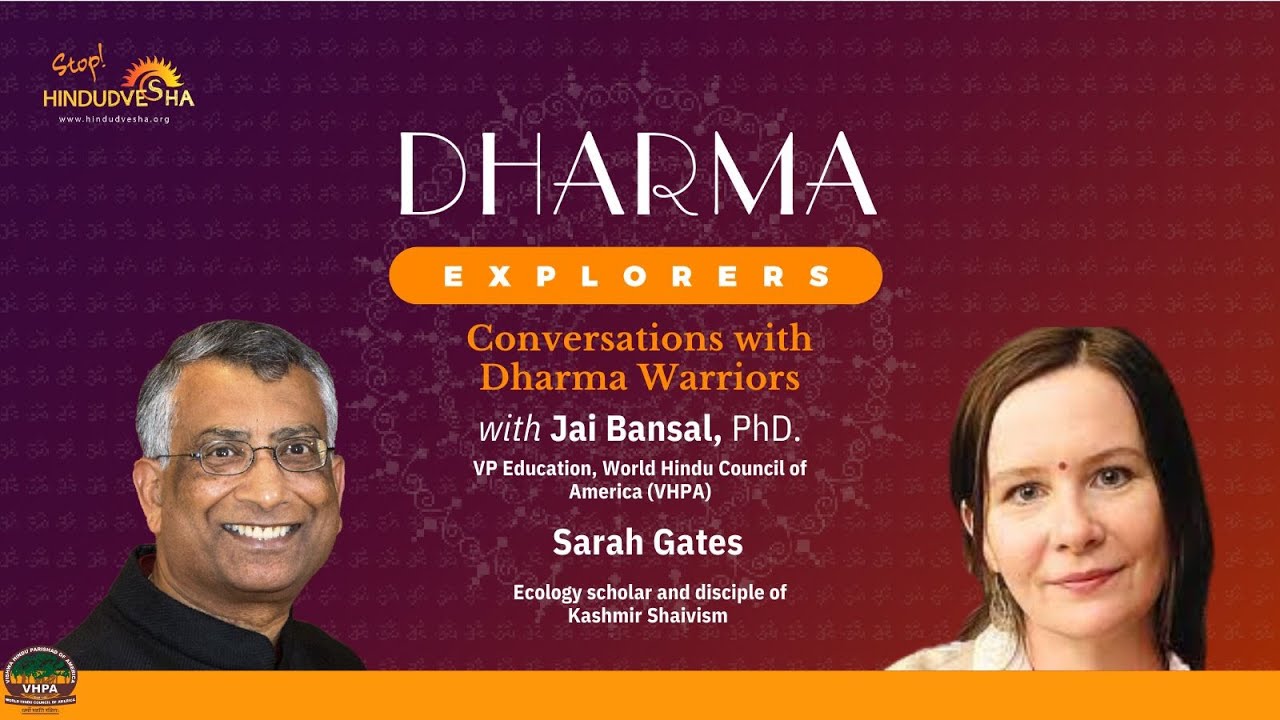

Exploring the Deep Roots of Jewish-Hindu Connections with Dr. Nathan Katz
Exploring the Deep Roots of Jewish-Hindu Connections with Dr. Nathan Katz
“The peaceful coexistence of Jews in Hindu-majority India serves as a testament to the power of acceptance and integration in overcoming religious and cultural barriers.”
Dr. Nathan Katz, a professor emeritus at Florida International University renowned for his work in Indo-Judaic Studies, recently engaged in a compelling dialogue on the podcast “Dharma Explorers” hosted by Dr. Jai Bansal, VP of education with VHPA. The conversation, rich with historical insights and personal anecdotes, explored the deep-rooted connections and mutual respect between Judaism and Hinduism, highlighting Dr. Katz’s unique contributions to the field.
Dr. Katz’s fascination with India began in childhood, inspired by stories from his mother and his interactions with a Hindu neighbor who was a student of Swami Yogaswarananda. This early exposure set the stage for his lifelong engagement with Indian culture and spirituality. The 1960s cultural openness in America further fueled his interest, leading him to pursue advanced studies in Indian religions and classical languages, which included significant periods of research and education in India.
Throughout his career, Dr. Katz has been instrumental in developing programs in Jewish Studies, Asian Studies, and Jain Studies at Florida International University. However, his most significant academic endeavor has been in Indo-Judaic Studies, where he has authored several influential books. His work has not only bridged scholarly gaps but has also fostered a deeper understanding of the cultural and spiritual synergies between Indian and Jewish civilizations.
In his discussion with Dr. Bansal, Dr. Katz reminisced about his experiences in Kochi, where he encountered a Jewish community that exemplified coexistence and integration within a predominantly Hindu society. He shared stories of the Jewish community in Kochi, emphasizing their dual identity as proud Jews and proud Indians—a sentiment that resonates deeply with his own feelings of a dual cultural identity.
Dr. Katz also addressed common misconceptions about Hinduism, particularly the Western portrayal of it as polytheistic. He clarified that Hinduism, like Judaism, fundamentally worships a single supreme being, though Hindus may recognize different manifestations of this entity. This understanding, he noted, is crucial for fostering deeper interfaith dialogue and mutual respect, themes that are central to his scholarly work.
The conversation also delved into the historical interactions between Jews and Hindus, which Dr. Katz described as being marked by an exceptional level of acceptance and integration. He noted that Jews have lived in India without experiencing the anti-Semitism prevalent in other parts of the world, pointing out the absence of historical trauma like the Holocaust in the collective memory of Indian Jews. This, he suggested, has allowed the Jewish community in India to maintain a positive and open identity, contributing significantly to their sense of security and belonging.
Dr. Katz highlighted the shared values between Hinduism and Judaism, such as strong familial bonds and a high regard for education. Both religions, he pointed out, emphasize ethical living and spiritual growth, which can serve as common ground for interfaith understanding and cooperation.
The discussion also touched on the political dimensions of religious identity and the potential for religious beliefs to both heal and cause conflict. Dr. Katz expressed concern over the increasing global tensions and the role of religious bigotry in fueling these conflicts. He emphasized that true religious engagement should focus on the teachings that promote peace and understanding over divisiveness.
In terms of practical steps towards interfaith harmony, Dr. Katz suggested that more dialogue and educational efforts are needed. He recounted initiatives such as the joint declaration made by Jewish and Hindu leaders recognizing the monotheistic underpinnings of both faiths, which he believes can reduce religiously motivated violence and increase global harmony.
The podcast concluded on a note of optimism and a call to action. Dr. Katz encouraged continued dialogue and collaboration between different faith communities, particularly in these turbulent times. He underscored the importance of understanding and respecting the spiritual and ethical dimensions of different religions as a pathway to peace.



